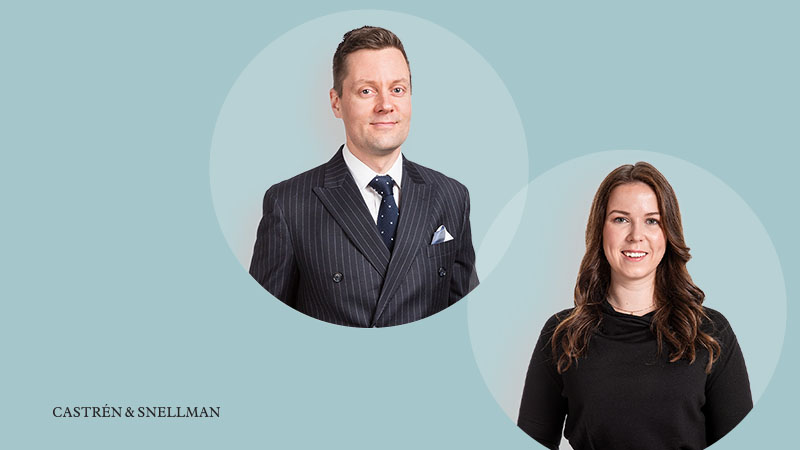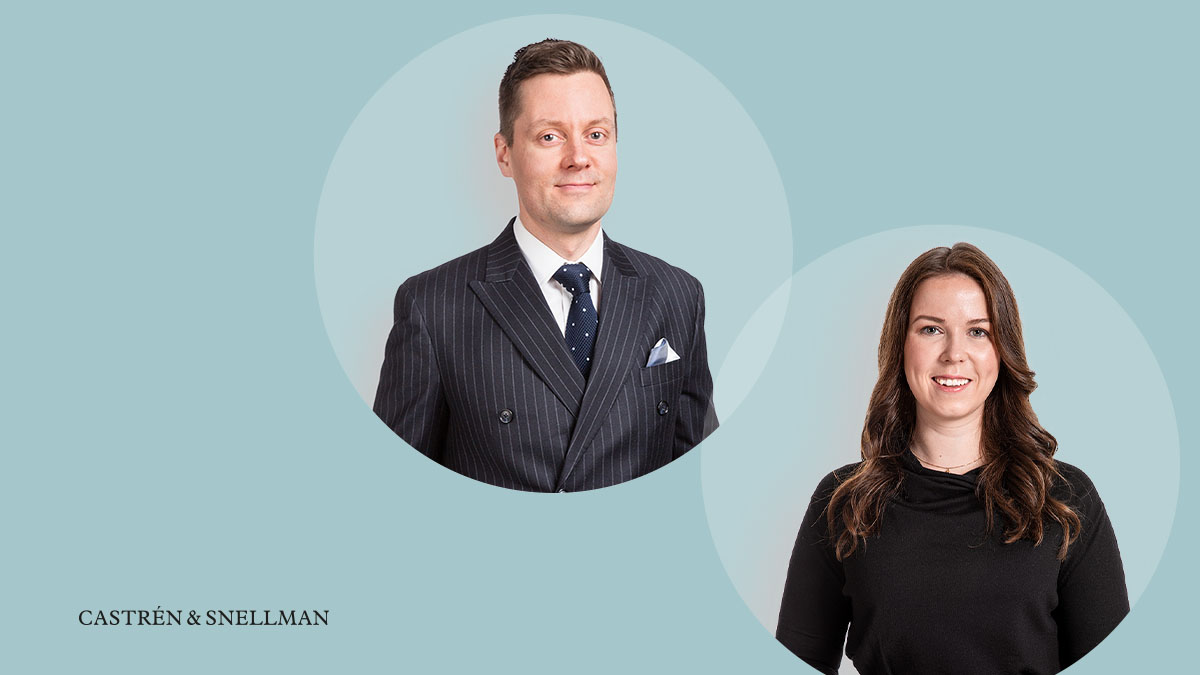The Supreme Administrative Court of Finland (SAC) has recently issued three rulings concerning the tax exemption regime of investment funds in section 20a of the Income Tax Act (ITA). The judgments are based on a ruling (C-342/20) by the Court of Justice of the European Union (CJEU) issued in spring 2022, in which the CJEU ruled that section 20a of the ITA conflicted with EU law. You can read more about that case here.
New Finnish case law considering the tax exemption of foreign investment funds



Lotta Manu & Mikko Alakare
Related services
Tags
The tax exemption provision, section 20a of the ITA, entered into force in 2020. The reasoning behind the legislative change was to include the qualifying criteria for a tax-exempt investment fund in tax law. The provision states that to meet the tax exemption criteria, a foreign fund must be contractual, open-ended and open to the public as well as have at least 30 investors. In addition, alternative investment funds (AIF) are still deemed tax-exempt if their capital value is at least 2 MEUR, their investors are professional or equivalent, and they distribute at least 3/4 of their annual profits to the investors. AIFs that invest mainly in real estate assets are required to distribute at least 3/4 of their annual profits. The provision is based on the assumption that funds that are established under Finnish law automatically fulfil the criteria.
After the CJEU’s ruling, it has already been established that other than contractual funds may also be deemed tax-exempt in Finland if the fund is otherwise comparable to a Finnish tax-exempt investment fund.
SAC 2022:139
The first ruling, SAC 2022:139, was issued on 12 December 2022. The case concerned a Luxembourg FCP, a contractual umbrella fund whose sub-fund A invested mainly in real estate assets. The fund, and therefore also sub-fund A, had only one direct unitholder.
Section 20a(4) of the ITA refers to chapter 16a(4) of the Alternative Investment Fund Managers Act, which provides that a special investment fund investing in real estate should have at least ten unitholders. The question before the SAC was therefore whether the sub-fund A fulfils the conditions for tax exemption, even though it has only one direct unitholder.
In its ruling, the SAC stated that, considering the wording of section 20a(4) of the ITA and the government proposal on its inclusion as well as the principle of legality in taxation, the tax exemption in this case is only conditional on the profit distribution criteria included in the wording of section 20a of the ITA. Consequently, the provision was not deemed to establish any other conditions for the tax exemption.
SAC 2022:142
The second ruling, SAC 2022:142, was issued on 14 December 2022. The case concerned the comparability of an AIF fund to a tax-exempt investment fund under section 20 of the ITA for the tax year 2019 and to an alternative investment fund under section 20a of the ITA for the tax year 2020. The relevant factor in this case was also the number of unitholders.
The fund in question was a French FPCI, a contractual alternative investment fund, which had 33 external investors in total. However, 18 of these investors belonged to a group consisting of regional banks and their group companies. In its preliminary ruling, the Central Tax Board had considered that the group was a single entity and therefore the total number of unitholders would be below the required 30, meaning that the fund would not meet the criteria for tax exemption under section 20a of the ITA.
In its ruling, the SAC held that the investor group was not to be considered a single entity. Therefore, the fund had more than 30 unitholders and fulfilled the conditions for tax exemption in this respect. For the tax year 2020, the SAC stated that, as a closed fund, to qualify for the tax exemption under section 20a(3) of the ITA, the fund must also fulfil the profit distribution criteria.
SAC 2022:138
The third recent ruling of the SAC, issued on 12 December 2022, concerned a sub-fund of a Luxembourg alternative investment fund established as an FCP. The fund invested mainly in real estate assets. The case focused on the question whether it was relevant for the comparability analysis that the fund had invested more than 1/5 of its assets in construction or development projects, which is not allowed for Finnish tax-exempt real estate funds. Even though the requirement is not spelled out in the tax exemption provision, section 20a of the ITA, the SAC concluded that since more than 1/5 of the fund’s assets were invested in development projects, the fund did not qualify for tax exemption. The court noted that the Finnish tax exemption regime for real estate investments in development projects has been capped to 1/5. Therefore, SAC stated that even if the requirement on the nature of the real estate investments may restrict the free movement of capital, it is acceptable as the fund, based on its investment structure, is not objectively comparable to a Finnish real estate fund.
Conclusions
These decisions were expected after the judgment of the CJEU in spring 2022. Following the SAC’s rulings, it is becoming even more clear that section 20a of the ITA must be interpreted taking into account the requirement of objective comparability that has been emphasised in CJEU’s case law. Although the rulings were not surprising, they provide certainty to non-resident funds considering investments in Finland.
Our experienced team is happy to discuss these cases with you in more detail and to assist you, for example, in withholding tax reclaim processes and with structuring your investments in Finland. Please do not hesitate to contact us.







